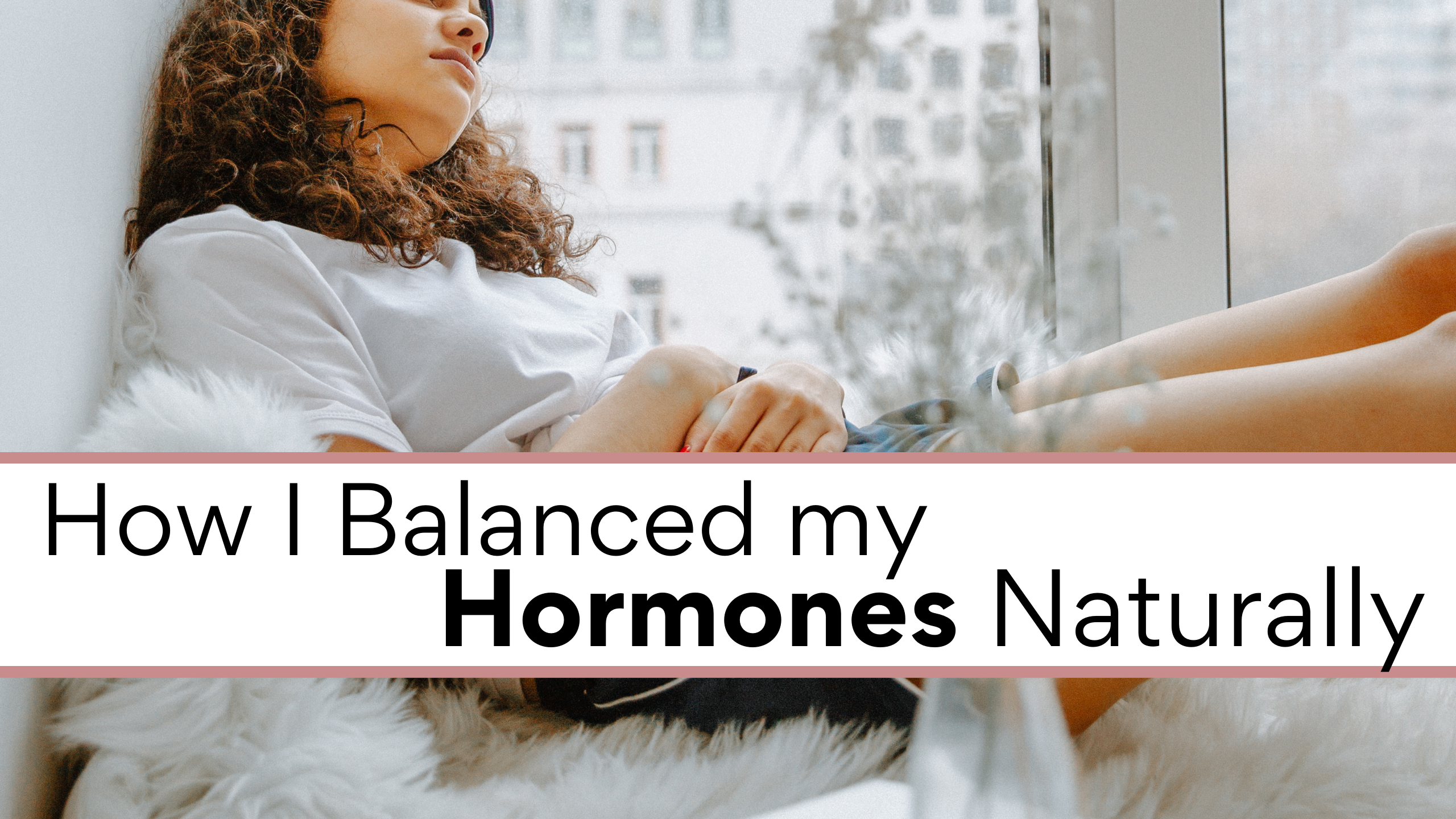Links you click on in this post may earn us a small commission at no cost to you. Thank you for your support.

Hormones play a crucial role in our overall well-being, influencing everything from mood and energy levels to reproductive health. For many individuals, hormonal imbalances can lead to disruptive symptoms, particularly during the premenstrual period. This condition, commonly known as premenstrual syndrome (PMS), can significantly impact daily life. Fortunately, there are natural and holistic approaches to improve PMS and restore hormonal balance. In this comprehensive guide, we’ll delve into the causes of hormonal imbalances, the symptoms of PMS, and evidence-based strategies to Naturally Balance Your Hormones.
Understanding Hormonal Imbalances and PMS
- The Role of Hormones in the Body Hormones act as messengers in the body, regulating various physiological processes such as metabolism, growth, and reproductive functions. Estrogen and progesterone, in particular, play a crucial role in the menstrual cycle and overall hormonal balance.
- Common Causes of Hormonal Imbalances Hormonal imbalances can arise from various factors, including stress, poor nutrition, lack of exercise, and exposure to environmental toxins. Additionally, underlying health conditions such as polycystic ovary syndrome (PCOS) or thyroid disorders can contribute to hormonal disruptions.
- Overview of Premenstrual Syndrome (PMS) PMS is a common condition affecting menstruating individuals, characterized by a range of physical and emotional symptoms. These symptoms typically occur in the luteal phase of the menstrual cycle, which is the two weeks before menstruation begins. Common symptoms of PMS include:
- Mood swings
- Irritability
- Fatigue
- Bloating
- Breast tenderness
- Headaches Understanding the specific symptoms and their triggers is crucial for developing targeted strategies to alleviate PMS.
(This page contains affiliate links and health information. If you want to read more about that check out our disclaimer page)
Western Medicine’s Approach to Hormone Imbalances
First, they will normally take blood tests to see exactly which hormones are “off”. There are drugs like progestin that will force a period (take it for 10 days and then 10 days later you will bleed) but it has a litany of side effects. Trust me – as someone who’s taken this drug, they’re nasty. I had awful mood swings, cramps, and had IBS symptoms. Not fun.


Balanced Nutrition for Hormonal Health
Nutrient-rich foods are fundamental for maintaining hormonal balance. Include a variety of fruits, vegetables, whole grains, and lean proteins in your diet. Essential nutrients for hormonal health include:
- Omega-3 fatty acids: Found in fatty fish, flaxseeds, and walnuts, omega-3s support hormone production and reduce inflammation.Vitamin D: Exposure to sunlight and vitamin D-rich foods like salmon and fortified dairy products can help regulate hormonal activity.Magnesium: Found in leafy greens, nuts, and whole grains, magnesium supports a healthy menstrual cycle and reduces PMS symptoms.

Anti-inflammatory Diet
Chronic inflammation can contribute to hormonal imbalances. Adopting an anti-inflammatory diet that includes foods like turmeric, ginger, and berries can help reduce inflammation and alleviate PMS symptoms.

Regular Exercise for Hormone Regulation
Physical activity is a powerful tool for improving hormonal balance. Regular exercise has been shown to:
- Regulate insulin levels
- Reduce stress hormones
- Enhance mood through the release of endorphins Aim for a mix of cardiovascular exercises, strength training, and mind-body practices like yoga to support overall hormonal health.

Stress Management Techniques
Chronic stress can disrupt hormonal balance, contributing to conditions like adrenal fatigue and exacerbating PMS symptoms. Incorporate stress management techniques into your routine, such as:
- Meditation and mindfulness
- Deep breathing exercises
- Yoga and tai chi
- Adequate sleep Prioritize self-care to reduce stress and support hormonal harmony.

Supplements that help naturally balance your hormones
Supplements can play a valuable role in naturally balancing hormones, providing targeted support to address deficiencies and promote overall hormonal health. Here’s what I take:
2: A Natural Hormone Balancing Supplement
While considering supplements, it is essential to consult with a healthcare professional to ensure proper dosage and suitability, as individual needs can vary. Integrating these supplements into a well-rounded approach that includes a balanced diet and a healthy lifestyle can contribute significantly to the natural balance of hormones.

Limiting Exposure to Endocrine Disruptors
Endocrine Disruptors are chemicals that can interfere with the body’s hormonal balance. Reduce exposure to these substances by:
- Choosing organic produce to minimize pesticide exposure
- Using natural cleaning and personal care products
- Avoiding plastic containers with BPA Minimizing exposure to endocrine disruptors supports overall hormonal health.
Buy Our Hormone Balancing Workbook for only $4.99
We know how much you’re struggling (and how overwhelming all this information can be!) I have struggled my entire life with hormone imbalances and have poured all the knowledge and encouragement I wish I had into this weekly workbook for you – and priced it affordably so that it is an accessible resource to all.
It will help you stay on track and pinpoint areas of your life that need improvement. Plus a little cheerleading along the way doesn’t hurt. You’re not alone.

(This post contains affiliate links and information about health and wellness involving supplements. To read more about either of these topics, read my disclaimer page.)
Related Content: 10 Signs you’re struggling with Hormonal Imbalance
author of a Natural Endeavor

